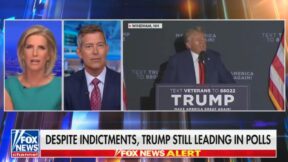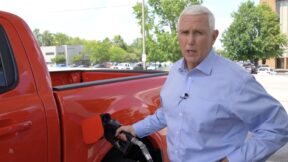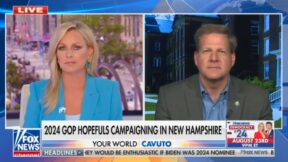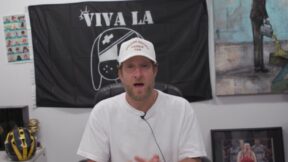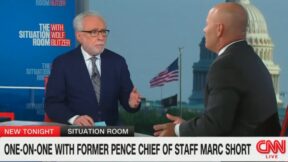Conservative Legal Commentators Horrified by Trump’s Confessions During Baier Interview: ‘Game Over, Legally. What an Idiot.’
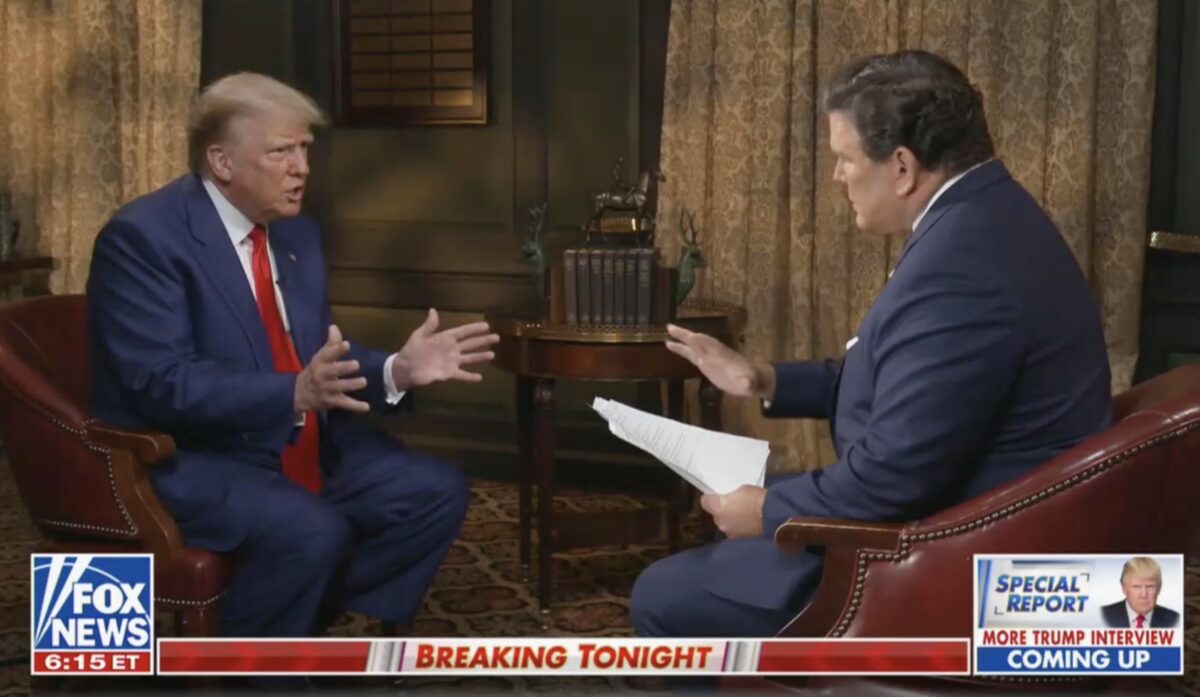
Donald Trump’s interview with Fox News anchor Bret Baier made headlines, not just for the former president’s penchant for colorful commentary, but also for the potential legal consequences for his responses that may be viewed as admissions in the federal criminal case against him — a fact that many conservatives noted with dismay.
Earlier this month, the Department of Justice unsealed a federal indictment stemming from Special Counsel Jack Smith’s investigation with 37 criminal counts spelling out how Trump retained boxes of documents that “included information regarding defense and weapons capabilities of both the United States and foreign countries; United States nuclear programs; potential vulnerabilities of the United States and its allies to military attack; and plans for possible retaliation in response to foreign attack.”
Some of the most shocking allegations in the indictment relate to communications from Trump, his family members, his attorneys, and other staffers acknowledging that he had retained classified information that had not been declassified — plus the now-viral photos showing boxes of documents that allegedly contained classified information, stacked up in bathrooms, ballroom stages, storage rooms, and other nonsecure areas.
Trump pled not guilty to all the charges against him and has vociferously insisted the prosecution against him is a “WITCH HUNT!”
The topic of the federal charges came up multiple times during the interview, and while the ex-president insisted he had “zero” worries about the indictment, he might be wise to worry now in the aftermath of that interview, specifically regarding his discussion of how he responded to the National Archives and Records Administration’s request for the return of the documents and attempts to explain why he took and kept the documents.
Many conservative legal commentators were shocked by Trump seemingly admitting to key elements of these crimes on national television — a confession that is almost certain to be admissible in court. The ex-president, like all criminal defendants, has the constitutional right to refuse to testify, but Smith’s prosecutorial team can gather up all of Trump’s television appearances, Truth Social posts, campaign rally speeches, and other public comments and enter them into the record to his legal detriment.
Chris Christie, the former New Jersey governor and one of Trump’s challengers for the 2024 GOP presidential nomination, lambasted his “horrible political and legal strategy” exhibited in the Baier interview.
“I mean, does anybody in America believe this?” Christie said about Trump’s attempts to explain his actions. “I think he knows he’s in trouble,” Christie, a former prosecutor argued, adding:
And last night, I think the worst moment for him was talking about the fact that he just didn’t have time to go through these boxes. Well, in response to the grand jury subpoena, yet he told the government and had his lawyer certify that he had returned all of the documents that were responsive to the subpoena. That is obstruction of justice. And it appears to me last night as a former prosecutor, that he had he admitted obstruction of justice on the air last night to Bret Baier. I can tell you this, his lawyers this morning are jumping out of whatever window they’re near.
Erick Erickson was right to the point in a tweet Monday evening. “Guys, Trump admitted on TV tonight he withheld documents from the grand jury,” he wrote. “Game over, legally. What an idiot.”
Erickson, a former Georgia attorney, expanded on this in a Substack post headlined, “That Was Not Smart.”
“Trump sat with Bret Baier last night and all but admitted to a felony,” wrote Erickson, explaining how the grand jury subpoena meant “Trump had only one of two choices: hand over the documents or challenge the subpoena. He did not do the latter, so he had to do the former.” The former president’s claims he was “very busy” and needed to sort through his personal belongings was simply “not a defense to a grand jury subpoena.”
“This was a really, really bad idea for him to do this,” Erickson added. “It’s no wonder he is struggling to find and retain good counsel.”
Hot Air’s Ed Morrissey was incredulous at what Trump said during the interview, writing, “Did Trump just admit to obstruction — on national television?”
Morrissey then answered his own question, including a transcript of the interview and writing, “It certainly sounds like a tacit admission of deliberate obstruction in regard to the subpoena.”
“Trump just made it almost impossible for a jury to believe any denial on these allegations, and his justification here would be damning in court,” he explained, and “likely ruined a potential defense strategy for his attorneys” because he has now forced them “to work around” Trump’s publicly televised comments when they go to trial:
Bear in mind too that criminal defendants don’t have to testify in court. Trump could have refused to expose himself to cross-examination at trial and make Smith and his team prove obstruction on their own beyond a reasonable doubt. Instead, Trump put himself on national TV and let Bret Baier cross-examine him, in a way that prosecutors can use whether Trump agrees to testify or not. And Trump botched the exchange and ended up making a potentially fatal admission, not because of a skilled attorney, but because a journalist simply read the elements of the indictment to him.
Now Smith and his team can play this to a jury, and Trump can’t stop it. Public admissions are admissible in court whether or not defendants choose to testify, and probably carry even more weight when they’re on videotape. (Even private admissions are admissible if direct witnesses to the admission are willing to testify to them.) Trump will almost certainly have to testify now to explain this away — and everyone can imagine how Trump will hold up under prosecutorial cross-examination.
Jonathan Turley, a frequent legal commentator for Fox News, posted a Twitter thread that broadly praised his colleague Baier and noted that Trump has now forced his defense attorneys to change tactics:
Trump is “Every Lawyer’s Nightmare Client,” declared National Review’s Noah Rothman, writing that during the interview, Trump “rocketed off into a prolonged and ill-advised homily ostensibly aimed at establishing his innocence,” but instead “appeared to confirm many of the charges against him.”
The former president “appeared to corroborate the allegation that he withheld evidence from a grand jury,” wrote Rothman. “There are no ‘too busy’ and ‘I don’t want to’ clauses that allow targets of a federal subpoena to avoid compliance.”
A sampling of other reactions:
—
Have a tip we should know? tips@mediaite.com
